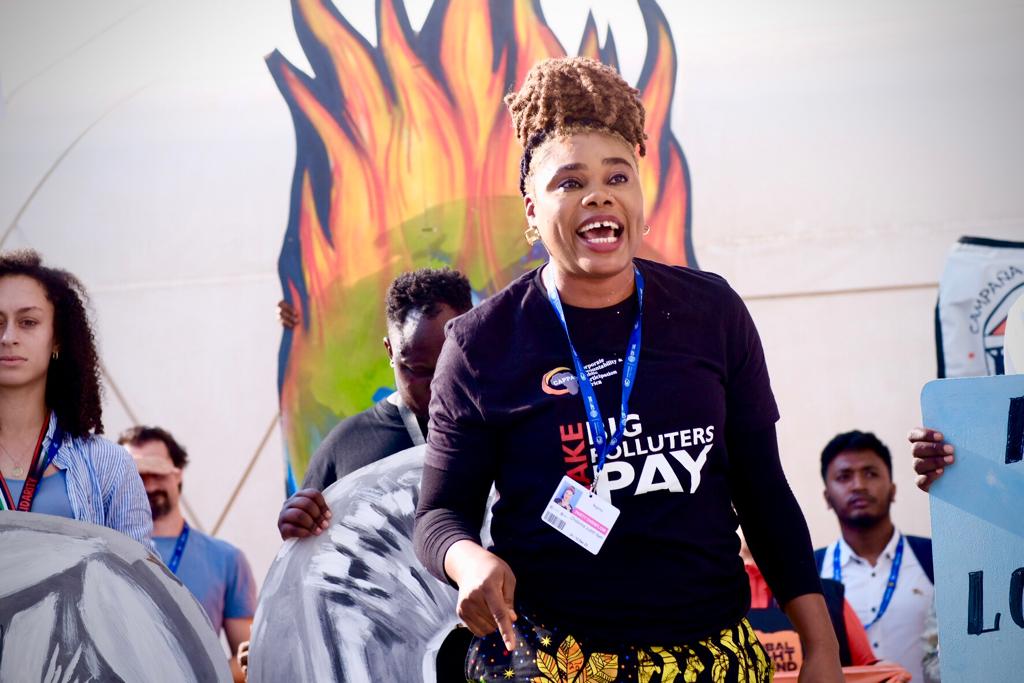International fossil fuel lobbyists have sent no fewer than 2,456 representatives to the ongoing climate change conference in Dubai, United Arab Emirates (UAE), to influence crucial climate talks by Nigeria and other countries.
The record-breaking number, who have all been granted access to the summit, signals an unprecedented presence from representatives of some of the world’s biggest polluters, according to a new analysis from the Kick Big Polluters Out (KBPO) coalition.
Nigeria leads Africa’s largest delegation to the conference also known as Conference of Parties (COP28).
The country’s long list of delegates has sparked criticisms from citizens, with many calling it a jamboree. The Presidential candidate of the Peoples Democratic Party (PDP) dismissed it as an owambe party, a reference to the fun-loving merriment common among Yoruba in the country. Peter Obi his Labour Party (LP) counterpart while decrying the delegation said “Most importantly, the vast majority of those in the Nigerian delegation…are either non-relevant civil servants or relations, friends and hangers-on of high government officials.”
But the fuel lobbyists’ 2,456 representatives trumps Nigeria’s record 1411-member delegation.
According to Minister of Information and National Orientation, Mohammed Idris, only 422 people out of the 1,411 from Nigeria were sponsored by the federal government.
There are significantly more fossil lobbyists granted access to COP28 than almost every country delegation – the 2456 fossil fuel lobbyists are only outnumbered by the 3081 people brought by Brazil (which is expected to host COP30), and the UAE, which as COP28 host brought 4409 people.
This year for the first time, thanks to sustained pressure from civil society, people attending COP28 were required to disclose who they represent, revealing many lobbyists who would likely have attended previous COPs incognito.
Africa is the continent most affected by climate change despite contributing the least to the crisis and Nigeria, Kenya and South Africa, among others, have been at the forefront of the continent’s climate justice bid at COP28, the outcome of which could mean the survival or otherwise of whole communities and millions of people on the continent.
The top ten most climate vulnerable nations with delegations at COP28 are Somalia (366), Chad (554), Niger (135), Guinea-Bissau (43), Micronesia (26), Tonga (79), Eritrea (7), Liberia (197), Solomon Islands (56) and Mali (146).
In a year when global temperatures and greenhouse gas emissions shattered records, there has been an explosion of fossil fuel lobbyists heading to UN talks, with nearly four times more than were granted access last year.
This coincides with a COP where fossil fuels and their phaseout are a focal point. It also elevates the growing call from Nigeria and other Global South countries, public officials, UN constituencies, and wider civil society to eject polluters from talks.
The Kick Big Polluters Out coalition analysed the provisional list of participants at COP28 line-by-line in the most in-depth study into the fossil fuel industry’s presence at any talks to date. Among the additional topline findings:
“Fossil fuel lobbyists have received more passes to COP28 than all the delegates from the ten most climate vulnerable nations combined (1609), underscoring how industry presence is dwarfing that of those on the frontlines of the crisis.
“A vast number of fossil fuel lobbyists were granted access to the COP as part of a trade association. Nine out of the ten biggest of these groups came from the Global North. The largest was the Geneva-based International Emissions Trading Association (IETA), which brought 116 people including representatives from Big Polluters Shell, TotalEnergies and Norway’s Equinor.
“In a further sign that COP28 is being used by Big Polluters as an opportunity to advance a fossil-fuelled agenda at the expense of frontline communities, there are more than seven times the number of fossil fuel lobbyists permitted entry to the Dubai talks than official indigenous representatives (316).
“France brought fossil fuel giants such as TotalEnergies and EDF as part of its country delegation, Italy brought a team of ENI representatives, and the European Union brought employees of BP, ENI and ExxonMobil.”
“To share seats with the Big Polluters in climate change conversations is to dine with the devil. This unholy matrimony will only endorse “conflict of interest” and further facilitate the silence of honest agitation. COP’s conclusions must be independent of industries’ parasitic influences and must only address the concerns of the vulnerable masses,” said Ogunlade Olamide Martins, Corporate Accountability and Public Participation Africa (CAPPA) Programme Manager.
Last year, KBPO’s analysis showed that at least 636 fossil fuel lobbyists were granted access to the COP27 climate talks in Egypt, up from 503 the year before that in Glasgow. And recent findings from KBPO have also found that fossil fuel lobbyists have attended COPs at least 7200 times over the last two decades.
Corporate access and lobbying at UN climate talks isn’t limited to the fossil fuel industry. Other polluting industries deeply implicated in the climate crisis such as finance, agribusiness, and transportation are also present, although they are not included in this analysis.
The Kick Big Polluters Out campaign calls on the UN climate body and governments to continue on the road towards a robust Accountability Framework to address the problem at its root, as with the tobacco industry at the World Health Organisation tobacco treaty talks.
Responding to the findings, Alexia Leclercq, Start: Empowerment, Co-founder said: “Do you really think Shell or Chevron or ExxonMobil are sending lobbyists to passively observe these talks? To advance climate solutions for the benefit of communities whose air and water they pollute? To put people and the planet over profit and their greedy dollars?
“Big Polluters’ poisonous presence has bogged us down for years, keeping us from advancing the pathways needed to keep fossil fuels in the ground. They are the reason COP28 is clouded in a fog of climate denial, not climate reality.”


